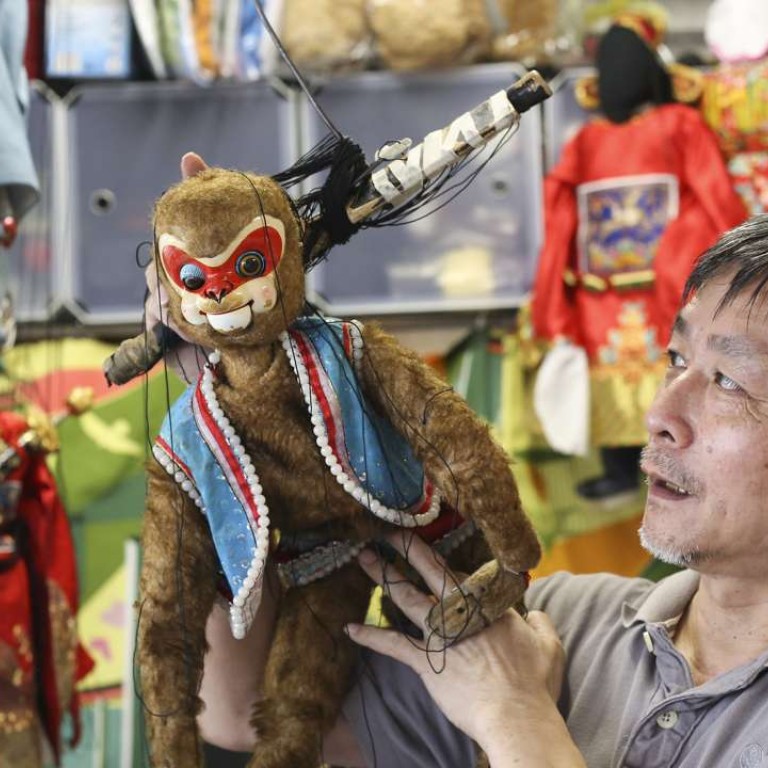
Hong Kong master puppeteer who’s spent his life perfecting a dying art
WATCH: Wong Fai grew up viewing shows in the capital of Chinese puppetry, Xiamen, where he was apprenticed to several puppet masters. Now in his sixties, he’s spent much of his career honing his stage skills
Puppets dangle from strings and hang lifeless on the wall. But, rather like the characters in Toy Story, there comes a moment when they spring to life – and that’s when they are in the hands of master puppeteers such as Wong Fai.
During one scene in a puppet show at the Sam Tung Uk Museum in Tsuen Wan earlier this month, a monkey ran around the stage, carrying a box on its shoulder and lifted its rear towards the audience as they erupted in laughter. In another play, Zhong Kui, a mythical God in Chinese folklore, drank from a jar of wine and drunkenly swung his sword around.
WATCH Wong Fai perform and explain his art
What the audience doesn’t see is Wong sweating profusely from pulling the strings and controlling the puppets. Though the movements of the marionettes look simple, they require a lot of effort on the puppeteer’s part.
The demeanour of the puppets has to match the characters’ personalities and the storyline
For starters, he has to handle up to three dozens strings and avoid them getting tangled. The strings are the secret to the more natural and less mechanical movements of Chinese marionettes – puppets in the West are usually operated using fewer than 10 strings.
Puppeteers pay great attention to detail. “The demeanour of the puppets has to match the characters’ personalities and the storyline,” says Wong. For example, Zhong Kui enters the stage striding confidently, but after a few drinks, he starts staggering.

Now in his sixties, Wong has spent most of his life mastering the skills of the puppeteer. It’s a trade that was in high demand before the advent of television, but today he is one of the few still staging puppet shows in Hong Kong. He grew up in Xiamen, a city in China’s southeast that is known as the capital of Chinese puppetry. As a child, he would watch different troupes perform puppet shows and shadow plays.
He eventually learned the trade as an apprentice, studying under several masters. In addition to marionette theatre, he also mastered shadow plays, and rod and glove puppetry. “The sifu will teach you everything they know, starting from the basic skills, to footwork, advanced technique and all the tips,” says Wong.

He runs the Hong Kong Puppet and Shadow Art Centre, established in 2001, and performs in primary and secondary schools, as well as at festivals and events.
While Wong does teach the art of puppetry as well, he only runs short courses and weekend classes, so there is only so much he can pass along to his students.

